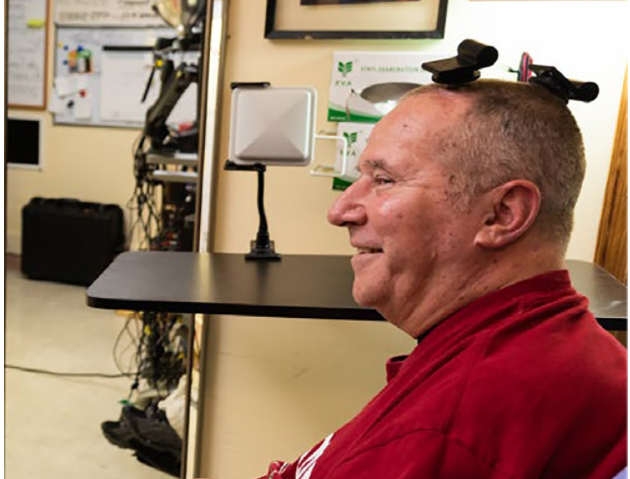The first wireless brain-computer interface (BCI) implanted in humans is being tested. Brown University has a licensing agreement with Blackrock Microsystems to make the device available to neuroscience researchers globally. Tests are being performed at the Providence Veterans Affairs Medical Center. The BrainGate team is using the device in ongoing clinical trials.
Texas-based company Neuralink, owned by Elon Musk, recently implanted a BCI in a monkey. The Neuralink BCI has not been tested on humans. But the monkey was able to play pong using its brain for remote control.
The assistive technology enables people with paralysis to communicate on computer screens. It also helps them control robotic prostheses with their minds. The technology is being refined to allows paralyzed people to walk again. And just like the Neuralink monkey people use their minds and to communicate with computers.
The data is showing the wireless system transmits signals with virtually the same fidelity as wired systems, and participants have similar point-and-click accuracy and movement speeds.
Latest BrainGate Trials of wireless system
For eight years, clinical trials were using BCIs that needed cables to connect the sensing array in the brain to operate the external devices. In the most recent round of studies, the system is able to transmit brain signals without the physical tethering to a de-coding system.










